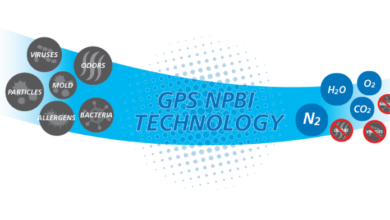Enterprise Manufacturing intelligence Solutions: 5 Best Apps

What is manufacturing intelligence?
Manufacturing intelligence, or enterprise manufacturing intelligence (EMI), is a powerful software solution that empowers manufacturers with the ability to collect, analyze, and visualize data from various sources across their operations. Here’s why it’s a game-changer:
By leveraging advanced analytics and visualization tools, manufacturing intelligence enables manufacturers to gain valuable insights into their operations. It allows you to monitor key performance indicators (KPIs), identify bottlenecks, detect anomalies, and make data-driven decisions in real time.
With manufacturing intelligence, you can optimize your production processes, reduce downtime, minimize waste, and enhance overall efficiency. By having a comprehensive understanding of your operations, you can identify areas for improvement and implement corrective actions swiftly.
Manufacturing intelligence is a vital component of closed-loop manufacturing (CLM). It bridges the gap between operations and engineering by providing near-real-time visibility and deeper insights. The data and insights generated can be fed back to design and engineering teams, enabling continuous process and product improvement.
In a rapidly evolving manufacturing landscape, harnessing the power of manufacturing intelligence is no longer a luxury but a necessity. It provides the foundation for data-driven decision-making, operational excellence, and staying ahead of the competition.
Empower your manufacturing operations with comprehensive data insights, actionable intelligence, and continuous improvement. Embrace the future of manufacturing excellence today! 🚀🏭💡
Manufacturing Intelligence Benefits:
Manufacturing intelligence offers several benefits that enhance manufacturing operations and drive continuous improvement. It enables better communication and coordination between different departments and stakeholders, leading to more efficient and integrated workflows. Here are some key advantages:
- Facilitates seamless collaboration and data exchange between manufacturing operations and enterprise systems.
- With near-real-time visibility into manufacturing operations, users can monitor and track key performance indicators (KPIs) across individual plants or multiple facilities.
- Allows authorized personnel to access critical data and insights remotely.
- By leveraging advanced analytics capabilities, manufacturing intelligence enables the identification of performance trends over time.
- Manufacturing intelligence software provides powerful analytical tools and visualization capabilities.
- Through the utilization of manufacturing intelligence, manufacturers can uncover new insights about their operations.
Manufacturing Intelligence Process
Manufacturing intelligence enables in-depth analysis of business processes by integrating process data. The dashboard provides management with a clear overview of areas that require attention. It enhances process speed, reduces lead times, and is cost-effective. Manufacturing intelligence serves as an effective tool for production, location, and plant management to adapt business processes.
The dashboard directs management’s focus to critical areas, facilitating immediate corrective action. A well-organized dashboard includes relevant performance indicators like production volumes, lead times, raw material yields, energy consumption, quality metrics, costs, equipment status, downtime, statistics, trends, and batch analyses for optimal decision-making.
Manufacturing Intelligence Solutions:

Manufacturing intelligence solutions are comprehensive software systems designed to gather, analyze, and interpret data from various sources within a manufacturing environment. By collecting and analyzing data from machines, sensors, production lines, and other sources, manufacturing intelligence solutions enable manufacturers to optimize processes, improve productivity, reduce downtime, enhance quality control, and make data-driven decisions.
Enterprise manufacturing intelligence provides manufacturing leaders with the means to improve products, services, and processes by equipping workers with valuable information and tools for enhanced job performance and productivity.
Cybertrol’s manufacturing intelligence solutions leverage their team’s expertise in information systems and manufacturing to enable efficient visualization and analysis of your operations. They offer plant-wide information systems for each site, gather data for enterprise-level dashboards, and utilize manufacturing intelligence strategies that utilize purpose-built tools and interfaces. Their aim is to assist you in streamlining your processes and optimizing your operations.
Factbird: Take charge of your manufacturing efficiency and redefine success with Factbird, an end-to-end manufacturing intelligence solution that revolutionizes data gathering and analysis for all manufacturers. Simplify the process and unlock game-changing insights to propel your operations forward.
Denison Consulting Group specializes in analyzing and improving power quality for industrial and large commercial facilities. Their solutions detect and address power events that can cause production failures and costly downtime. By monitoring power quality and providing recommendations, they have increased the lifespan of plant assets, reduced failures, and lowered energy costs by 20% or more, improving overall operations and sustainability.
Viact AI: Customindz, a Hong Kong SAR startup, offers Viact.ai, a construction AI solution. Viact AI combines computer vision and machine learning to monitor and report worker behaviors and anomalies during construction using IP cameras. The company has received investments from prominent accelerators and collaborates with local construction consulting firms and contractors.
Manufacturing intelligence software:
Manufacturing intelligence software helps create a digital twin of your manufacturing processes. It allows you to compare the planned digital twin of product and process with the as-produced digital twin, facilitating accurate analysis, troubleshooting, and optimization
Enterprise Manufacturing Intelligence (EMI) is a software solution designed to collect and consolidate data from various sources within a manufacturer’s operations. It provides reporting, analysis, dashboards, and other tools to improve manufacturing performance. By generating a unified analytical data model, manufacturing intelligence software enables manufacturers to explore contextualized data and gain insights into their actual manufacturing operations, comparing them to engineering plans and product designs.
This software contributes to closed-loop manufacturing (CLM) by offering real-time visibility into operations and providing valuable insights that can be used to enhance process and product improvements through feedback to design and engineering teams. It facilitates a direct comparison between the as-produced digital twin and the planned digital twin of the product and process.
Journal of Intelligent Manufacturing

The Journal of Intelligent Manufacturing is a peer-reviewed academic journal that focuses on research related to intelligent manufacturing systems, technologies, and applications. It covers a wide range of topics, including but not limited to artificial intelligence, machine learning, robotics, automation, data analytics, cyber-physical systems, digital twins, and the Internet of Things (IoT) in the context of manufacturing. The journal publishes original research articles, review papers, and case studies that contribute to the advancement of intelligent manufacturing and its impact on industry practices. It serves as a platform for researchers, engineers, and practitioners to share their latest findings, innovations, and insights in this rapidly evolving field.
What industry is Hexagon Manufacturing Intelligence?
Hexagon Manufacturing Intelligence operates in the metrology industry. They are known as the largest software developer in this industry and provide software solutions for data acquisition, analysis, evaluation, data management, and reporting. Metrology is the science of measurement and plays a critical role in manufacturing and quality control processes by ensuring accuracy and precision in measurements. Hexagon Manufacturing Intelligence’s software solutions support industries such as automotive, aerospace, electronics, and other sectors where precise measurements and quality control are essential.
Hexagon manufacturing intelligence locations
| Country | City | Address |
|---|---|---|
| United Kingdom | Cobham | Cedar House, 78 Portsmouth Rd HQ |
| United States | Carlsbad | 6005 Hidden Valley Rd #215 |
| United States | Chandler | 3350 N Arizona Ave #10 |
| United States | Double Oak | 119 Chapel Hill Dr |
The company provides an excellent work-life balance and allows employees the opportunity to transition to different departments within the organization. The benefits and paid time off (PTO) offered by the company are also generous.
5 Applications of AI in Manufacturing
Artificial intelligence is revolutionizing various industries, including manufacturing.
1. Robotics





